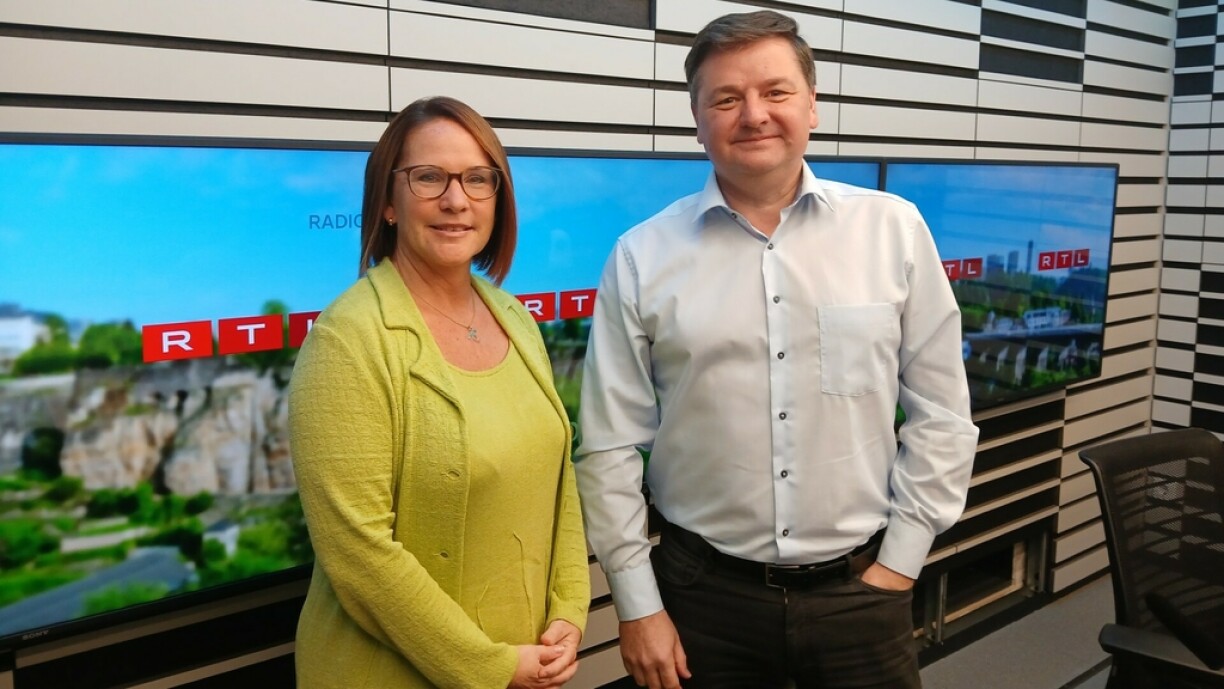
“Ukraine must defend itself and we must support them, while keeping our own security in mind”, according to Minister Backes. She added that, while Europe is not at war, Russia is testing Europe’s limits with recent drone incidents, pushing to see how far it can go.
Backes also explained that Europe should invest more into its own defence, adding that it is not possible that 300 million Americans are responsible for the security of 600 million Europeans. In this regard, she believes that US President Donald Trump is in the right, but she adds that this is something that was alluded to by the previous US administration under Biden as well.
Backes believes that Europeans are allied in solidarity and the focus is now on seeking deterrence by strengthening Europe’s capabilities.
This year alone, Luxembourg will support Ukraine with €120 million, as confirmed in the budget, she stated. Then another €15 million will be added through the so-called Prioritised Ukraine Requirements List (PURL) programme, according to Backes.
As far as arms support is concerned, Backes explained that Luxembourg has several models to choose from. If Luxembourg were to choose the so-called Danish model, this would mean that arms production would be financed in Ukraine, she said. Alternatively, she noted, the weapons would be manufactured in the West. Backes highlighted that the advantage of the latter option is that production would be better protected from Russian attacks.
No matter which path Luxembourg chooses, Backes said that the government will ensure that the investments have a positive effect on Luxembourg’s own economy. She also noted that whether weapons could be produced in Luxembourg itself is currently under review. However, this would first require an amendment to the weapons law, she said.
As for participation in an EU-wide air defence system, Backes explained that it is not yet clear what system will be used exactly or which partners Luxembourg will cooperate with. What is certain, however, is that the Grand Duchy will be taking part, she said.
Regarding the potential use of frozen Russian assets, Backes stated that a number of legal questions remain, adding that it may still take some time before a decision is made.
Backes outlined the scale of transformation ahead for Luxembourg’s army, which must grow significantly in the coming years to meet new NATO requirements. The goal is to recruit around 650 additional personnel, including not only soldiers but also specialists in fields such as IT and cybersecurity, she said.
Backes explained that to make the army more attractive as an employer, salaries are expected to increase, and the government is also considering cross-border recruitment. While mandatory military service is not on the table, she said that establishing both civilian and military reserve forces would be an important medium-term goal.
Backes noted that the image and social standing of the Luxembourg army have improved considerably in recent years, thanks in part to soldiers’ domestic contributions during crises such as flood response operations and the Winter Action initiative.
On the question of whether Donald Trump could play a role in ending the war in Ukraine, Backes said that it was too early to tell. She declined to comment on the US decision not to supply Ukraine with Tomahawk missiles, but observed that Russian President Vladimir Putin has shown no real interest in ending the war, otherwise he would have done so already. Without long-range missile systems, she added, Ukraine’s position remains extremely difficult.
Speaking about Luxembourg’s drone defence capabilities, Backes clarified that it is important to distinguish between different types of drones. Large military drones would require assistance from neighbouring countries, she said, whereas smaller drones would fall under the jurisdiction of the national police.
Reflecting on her dual ministerial role, Backes acknowledged that the work is demanding but rewarding, saying she enjoys being able to bring concrete projects to life.
Commenting on the latest political polls, which suggest that the Democratic Party’s (DP) main coalition partner Christian Social People’s Party could lose four seats, Backes said that such results are not pleasant but represent only a momentary snapshot. She emphasised that the government remains united and cooperative, describing relations within the coalition as positive and constructive.
Turning to her mobility portfolio, Backes noted that the Ministry of Mobility and Public Work’s budget stands at €4.5 billion, stressing the importance of ensuring that citizens maintain the freedom to choose their preferred mode of transport.
Regarding the high-speed tram project connecting Luxembourg City to the south, she explained that the route has been improved and that priority is being given to ensuring the new stops are as accessible and comfortable as possible. The additional stops, she said, reflect the reality of people’s daily movements and aim to bring the tram closer to where they live and work. The project’s cost, originally estimated at €800–900 million under former minister François Bausch, is now expected to rise following these adjustments, she said.
Following the negative referendum outcome on 30 km/h zones in Leudelange, Backes stated that it is not within the competence of the Ministry of Mobility and Public Works to impose such limits nationwide.